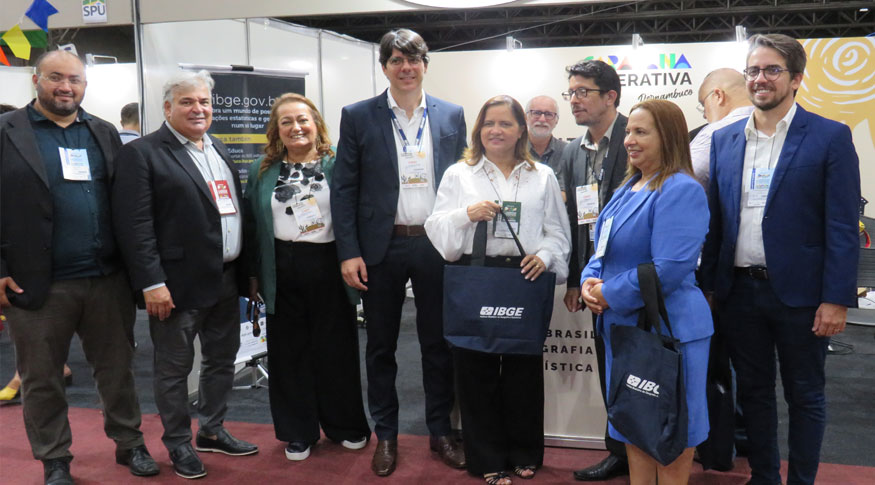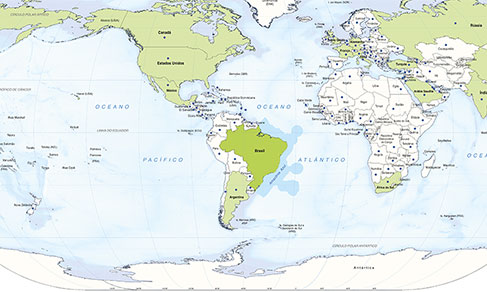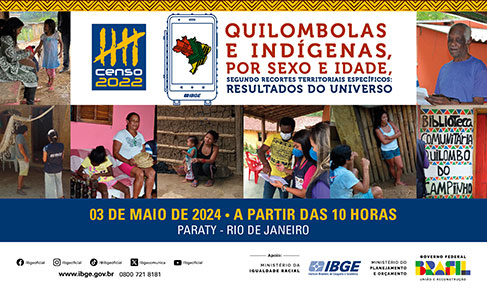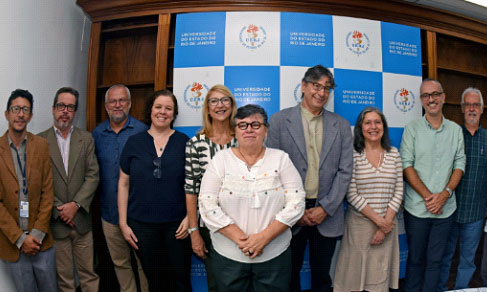ENCE's graduate program celebrates its 20th anniversary with defense of first doctoral thesis
January 17, 2018 09h00 AM | Last Updated: January 19, 2018 04h43 PM
The National School of Statistical Science (ENCE) opened its doors in 1953, with Statistics major. Its graduate program on Population, Territory and Public Statistics, created in 1998, has been on for 20 years now. Some activities have been planned for the celebration of this 20th anniversary: the opening speech, on March 5th, and also a celebration and a publication in the second semester, with the objective of promoting reflection about the program. ENCE was the first Higher Education School of Statistics in Brazil and in Latin America, and it belongs to the IBGE. It is also responsible for the training, specialization and education of the institutional staff.
According to the professor and coordinator of ENCE's graduate program, César Marques, “the creation of ENCE shows the concern of the IBGE for educate persons in order to have professionals engaged in the development and production of national statistics”. In the 1970, before the creation of the academic master's and doctor's programs, "we knew this graduate program should not focus on pure, but in applied statistics". ENCE is considered a great promoter of interdisciplinary researches aimed at the analysis of public statisitcs released by the IBGE and by other official bodies. It is worth mentioning that the theses and dissertations produced at ENCE, which amount to more than 330 so far, are not considered official government data, but academic works as those from any other institution of that kind.
The researchers of the program reaffirm its interdisciplinary character: their is an association with other fields of knowledge, mainly with human sciences, like geography, urban sociology, economics and demography. In Brazil's Centre for Improvement of Higher Education Personnel, it belongs to the major area of "Urban Planning and Demography". ENCE's graduate program also has a postgraduate course named Specialization in Environmental Analysis and Territory Management. The content is characterized by "the search for better methods, more effectiveness and the increase of information quality and confidentiality”, says the coordinator.
According to Marques, the changes in the institution's 60-year history is the result of major social and scientific transformations, such as urbanization, globalization and the development of computer science. “Undoubtedly, there is a necessity to understand and apply statistical tools to analyze those changes, but also to interpret their meanings. That requires a broader and more interdisciplinary education”.
Defense of the first PhD thesis
The doctor’s program of ENCE started in 2015, the students of the first class will be graduating by the beginning of 2019. The first one to defend a doctoral thesis was Luiz Felipe Barros, on 13 December 2017. The ex- student is also a civil servant at the technical management department of the IBGE Population Census, he was supervised by professor Suzana Cavenaghi.
Barros has a degree in Physic, but found his real talent in the areas of statistics and demography. He says that when he finished his master degree at ENCE, in 2009, he decided to take degree courses in the program waiting to be approved for a PhD, and that allowed him to start the course in 2015 with only two pending courses. For that reason, Barros finished the PhD in a little more than two and a half years. “The biggest advantage that I see in ENCE in comparison with the other institutions is its multidisciplinary character and the proximity with the IBGE, which is the biggest producer of information in the country”.
The final work of Barros, with the entitled “Potentialities and challenges in the use of administrative records and satellite night images for intercensus population estimates in Brazil”, discusses how the population estimate of cities done by the IBGE in the years that have no census can be improved using other government records and even satellites night images. Luiz explains that “Departing from an institutional problem we dealt with it in an academic way to meet the requirements of a thesis, and we had the support of INPE (National Institute for Space Research) in the tasks that involved the use of remote sensing data”.
The thesis was highly evaluated and approved by the doctorate board. To Marques, developing high-quality researches is very positive since “a proper construction of social indicators depends very much on very well-developed sample surveys, at the same time, the interpretation and the construction of statistical models about social phenomena must be well supported by social theories”.
ENCE's graduate program has a partnership with other countries and is granted sandwich-year scholarships from Capes, and, according to the coordinator, one of the goals for coming years if to attract foreign students. Marques states that “with the PhD program, researchers can be improved, there is a bigger potential for the creation of research groups and projects, with the increase of publications of high social and scientific impact coming from our institution”.
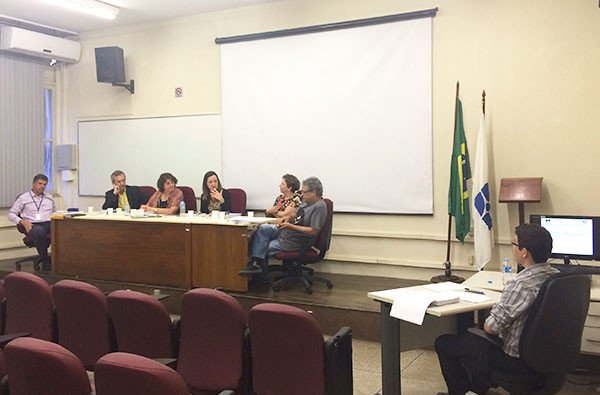
Got interested in the ENCE graduate program?
The master's and doctor's program on Population, Territory and Public Statistics has two research lines: “Population, Territory and Living Conditions” and “Production of Public Statistics”. The former focuses on the study of population and territory dynamics and on the population's living conditions, encompassing social, economic and environmental aspects. The second one encompasses matters related to survey planning and operation, as it is the case of Censuses, sample surveys and administrative records used for the production of public statistics that can represent the population/territory relationship and the population's living conditions.
Student enrollment for the first semester this year will be on the 19the and 20th of February. The institution will also take students not enrolled in the program, for specific subjects. Classes this semester will go from March 5 to May 25.
Text (in Portuguese): Camille Perissé, from Rio de Janeiro
Photos: César Marques










